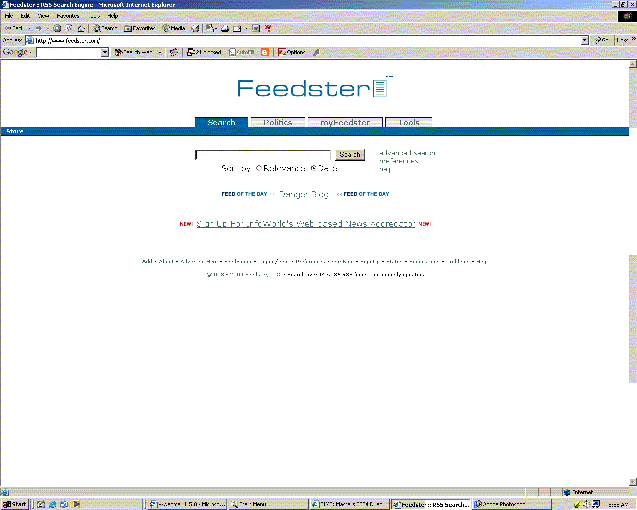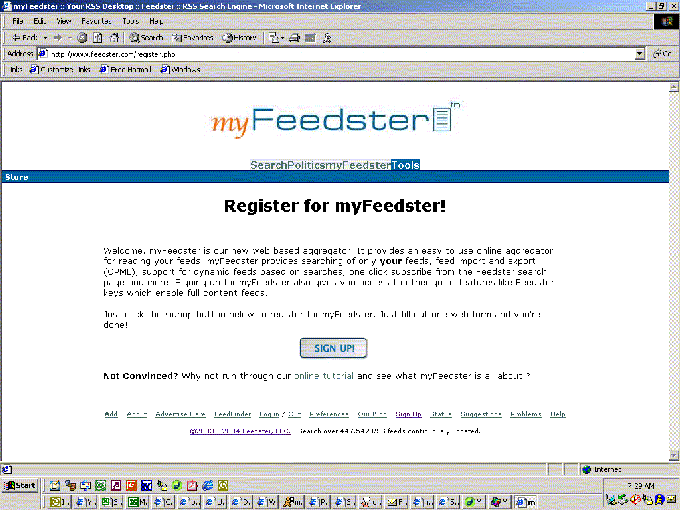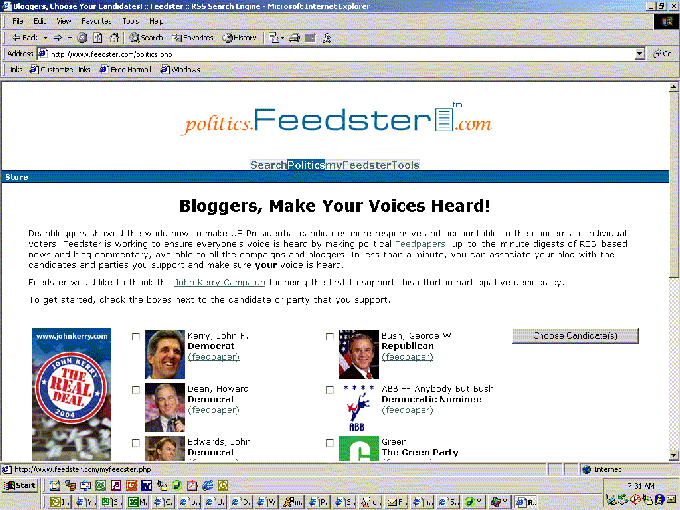From Feedster:
- Feedster is an RSS (really simple syndication) search engine. It searches through RSS feeds
and delivers results from both blogs and traditonal media.

Feedster has a search box for entering either a key word or a URL. This allows for finding conversations around a topic, a set of key words, or by location. However, when I entered several URL's into the search box, the system reported back that there were no references or links to these sites. This was surprising and I wondered how they were getting RSS feeds and whether they were seeing new blogs (some of these are new in the last 6 months) or finding new links. Key word searches on "John Kerry" for example produced results from both blogs and traditional media, and this was intersting to compare. However, searches on smaller topics with more than one word produced confusing results, that often had nothing to do with the topic searched, and it appeared that if one word is in the document it is returned as a match. Because of the fact that results are returned by date, with the most recent at the top, several of these searches returned false drops.

Registration on the site is easy enough, as compared with other sites, though it is not so clear for lay users why they might want to do it. Feedster is a news aggregator, and does provide a view of news based on RSS feeds, however, they don't have all feeds and therefore the site's usefulness is less clear. Also, other than news aggregation, there is no clear reason to join.

The "Politics" link is described as "Bloggers, Make Your Voices Heard!" and is set up as a voting tool to capture in a poll fashion what presidential candidates their users are supporting. It is nice because it includes pictures and as far as I can tell, is the only area of the site that includes any real graphics. And it might be engaging for users.
Strong points
- Some blog and some traditional media sources are shown in the results, and this is an interesting view of a search that others did not provide.
- Some results from online diaries were included, that others did not include.
- The result display is nearly identical to google, down to the formatting and delimeters.
Weak points
- Does not show keyword in context like Google.
- Searches for more than one key word bring up results that are confusing, and often match only one of the words. This did not meet expections as it conflicts with similar types of searching such as those performed on Google which many users are now familiar with.
- Searches with know results from other search engines (all those listed above) returned nothing.
- Some search results did not contain items from the last week or two, as search engines listed above returned.
- Terminology is very confusing: search results can be viewed by date, which is fine, but also by "relevance" and it was unclear from the results what the relevance is based on (authority of the blog, authority of the post? or some other factor). Also, the advanced search uses but doesn not define why someone would search based on an "RSS" feed, or an "OPML" feed.
- Joining Feedster gives a user access to various feeds and searches, but the descriptions are not clear about what these are or how beneficial they are for regular users. They appear to appeal only to high level users.